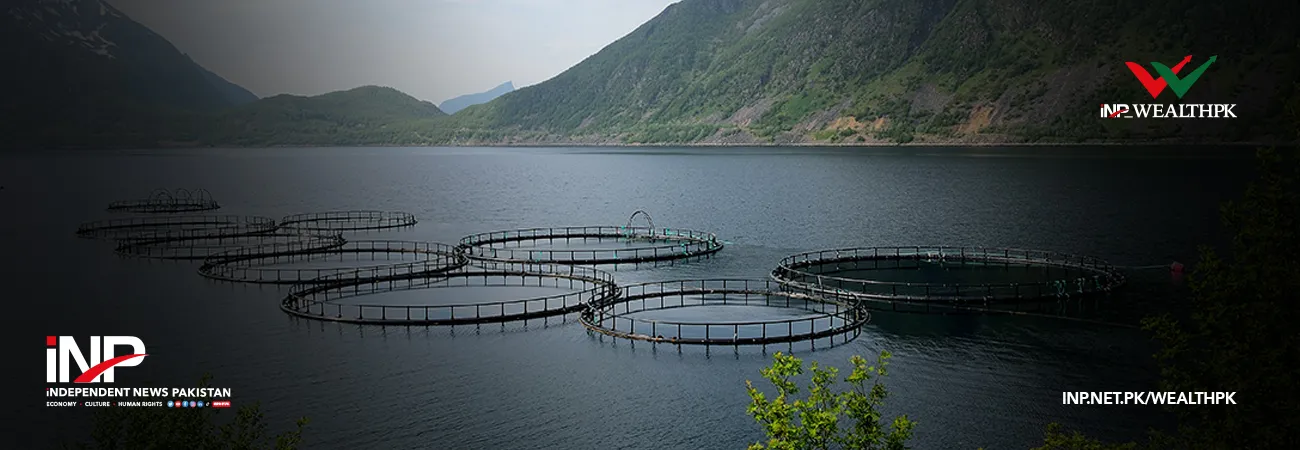INP-WealthPk
Arooj Zulfiqar
Aquaculture holds the key to Pakistan’s economic development and food security, and innovative technologies are needed to unlock this huge potential and promote this sector, Faisal Iftikhar, Chairman Pakistan Fisheries Exporters Association, Karachi, told WealthPK. “With wild fish stocks declining due to overfishing, aquaculture has emerged as a crucial solution to meet the increasing demand for fresh fish.
“Adoption of advanced fish breeding and genetic techniques can significantly enhance the productivity and quality of farmed fish. Through selective breeding programs, fish species can be improved for traits such as faster growth, disease resistance, and better feed conversion rates,” he said. Faisal said biotechnology had revolutionized aquaculture by enhancing reproduction and early development success of cultured organisms.
“Biotechnology can be applied to enhance reproduction and early development success of cultured organisms, as well as expand periods of gamete and fry availability. It may provide avenues for improving the reproductive success and survival of endangered species, thereby helping to identify and conserve aquatic biodiversity. “Additionally, there is a growing concern about the impact of the newly developing diseases in aquaculture.
Since the traditional methods of disease control are unsuccessful against many novel pathogens (particularly viruses), molecular techniques for pathogen screening and identification are gaining popularity. These molecular tools enable rapid detection and monitoring of diseases, facilitating early intervention measures and minimizing economic losses in aquaculture operations,” he added.
Closed-circulation systems have emerged as a significant development in holding technology for aquaculture. Closed-circulation systems in aquaculture refer to the advanced facilities that are designed to maintain a controlled and self-contained environment for the fish and other aquatic organisms. These systems are in contrast to the open field farming, where the fish are reared in natural water bodies such as lakes or oceans. “One of the key advantages of closed-circulation systems is their potential to reduce fishmeal consumption.
Fishmeal, which is made from wild-caught fish, is a common feed ingredient in aquaculture. However, its use raises concerns about overfishing and depletion of marine resources. “In closed systems, fishmeal consumption can be minimized by employing alternative feeds, such as plant-based or synthetic options, without compromising the nutritional needs of the fish.
This reduces the strain on wild fish populations and promotes sustainable aquaculture practices,” said the Pakistan Fisheries Exporters Association chairman. “Another significant benefit of closed-circulation systems is to improve the meat quality by providing temporary fish holding under optimal conditions, allowing the fish to recover from stress during harvest or transport. This results in improved flavour, texture, and overall culinary experience, leading to increased consumer satisfaction,” he added.
Faisal said Pakistan had favorable climatic conditions that are conducive to aquaculture. Therefore, it is necessary for the government to implement policies and initiatives that encourage the aquaculture industry in Pakistan. “Our farmers have to embrace innovative techniques and technologies to increase productivity, improve product quality, and diversify species for cultivation,” he emphasized.
Credit: INP-WealthPk




